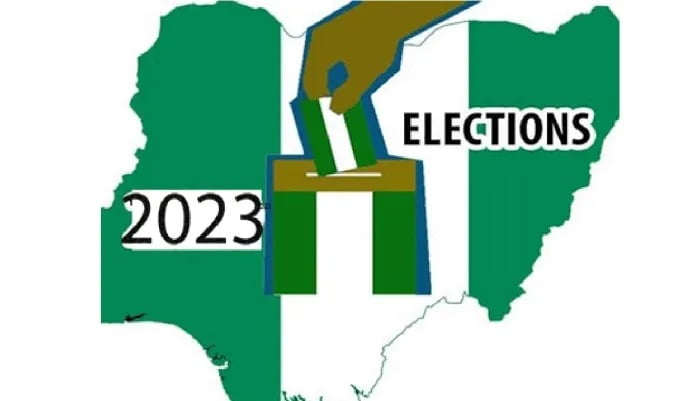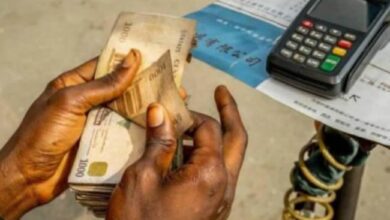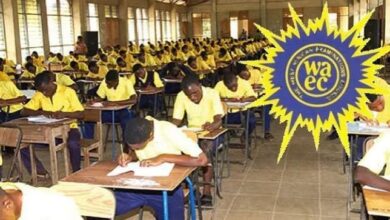2023 General Polls: Beyond routine post-election review
 By Emmanuel Oloniruha
By Emmanuel Oloniruha
Since the declaration of the 2023 general election results by the Independent National Electoral Commission (INEC), political parties, candidates, observers, analysts and other stakeholders have undertaken reviews of the elections.
Based on their understating of what transpired on Feb. 25 and April 15 have expressed divergent views. Recall that the Presidential and National Assembly election was held on Feb. 25 while supplementary polls took place on April 15.
Though most of the litigations regarding the elections are still ongoing at the election tribunals, including the Presidential Election Petition Tribunal, INEC in July commenced series post-election review meetings with stakeholders.
The practice is that after every general or major election INEC and stakeholders review the electoral process, not to pre-empt or undermine the ongoing election litigations but with the aim of performing better in subsequent elections.
The post-election review meetings presided over by INEC Chairman, Prof. Mahmood Yakubu, started with the commission meeting with Resident Electoral Commissioners (RECs) on July 4.
This was followed by nationwide state level review meetings involving INEC regular staff and ad hoc officials.
INEC also engaged Electoral Officers and the leadership of transport unions, including the National Union of Road Transport Workers (NURTW), the National Association of Road Transport Owners (NARTO) and the Maritime Workers’ Union of Nigeria (MWUN).
The commission also met with the State Collation Officers for Presidential Elections (SCOPEs) and collation officers for governorship and senatorial polls comprising mainly lecturers and Vice-Chancellors from federal universities.
It also met Civil Society Organisations, leaders of political parties and media executives.
The review climaxed with a meeting with head of security agencies under the aegis of the Inter-Agencies Consultative Committee on election Security (ICCES).
Areas of discussion include INEC’s operational and administrative procedures; legal framework for the conduct of elections; and ad hoc personnel engagement for the elections.
Security and technologies deployed in the electoral process, including the INEC Voter Enrolment Device (IVED), the deployment of the controversial duo of INEC Result Viewing Portal (IReV) and Bimodal Voter Accreditation System (BVAS) were also reviewed.
Also reviewed included the observers performance media coverage and polling/collation agents’ as well as accreditation.
Yakubu, speaking during the engagement, said the 2023 elections were a huge success as both in the processes and outcomes
“Today five political parties produced state governors, seven parties won senatorial seats while eight are represented in the House of Representatives and nine in state houses of assembly.
“Clearly, the 10th National Assembly is certainly the most diverse in party representation since 1999. In some States around the country, different political parties controlled the legislative and executive arms of Government.
“What is clear from these records also is that the days of single party dominance of our national politics are probably gone.
“Furthermore, many prominent candidates lost in the constituencies they contested, and political parties lost in some of their presumed strongholds,’’ he said.
The historical implications of 2023 elections were also not lost on the INEC chief.
According to him, for the first time since 1979 all non-sensitive and sensitive materials including over 500 million ballot papers, result sheets and other documents for the polls were printed in Nigeria.
He however, acknowledged that there were also some challenges, which he blamed on structural, infrastructural and human in nature.
One of such according to him, include the uploading of results to the INEC Result Viewing Portal (IReV), especially for the presidential election which encountered a glitch as explained in the commission’s statement released on Feb. 26.
“As you are aware, there were many challenges encountered before and during the elections. The severe cash and fuel situations were compounded by the perennial insecurity nationwide.
“Their impact on our deployment plans, compounded by the behaviour of some of our own officials in the field, made logistics management particularly challenging.
“The deployment of thugs by some political actors made election day administration difficult in a number of places’’Yakubu said.
He also noted that in spite the challenges of currency and fuel scarcity, the perennial insecurity including widespread attacks on INEC personnel and facilities nationwide, the commission for time in the last four general elections proceeded with the election as scheduled
At the meeting with electoral officers and leaders of transport unions, the issues of forward and reverse of logistics, that is transportation of personnel and delivery of election materials and INEC assets to the field and their retrieval, took the centre stage.
Addressing the participants, Yakubu said that over time logistics deployment has remain perennial challenge to conduct of election but now compounded by issues of infrastructure and insecurity.
He, however, INEC was able to carry out logistics deployment before, during and after the election.
He urged them to share their experiences on the procurement, deployment of logistics including sensitive and non-sensitive materials before, on election day and after the election.
At the meeting with SCOPEs, Yakubu sought their perspectives on the processes and procedures for the recruitment, training and posting of collation and returning Officers.
Also on logistics deployment, integrity of the collation and declaration procedure, including the application of the law, regulations and guidelines for result management.
The role of technology in result management, security of collation/returning officers and the collation centres, conduct of security personnel and party agents and election observers during collation.
He said that their views were important especially when issues have arisen and some Nigerians have raised concerns about result management at various levels.
Also at the meeting with CSOs, Yakubu urged all accredited observers for 2023 polls yet to submit their reports to do so.
“So far, only 67 observer groups comprising 62 domestic and five foreign groups have submitted their observation reports which represents just about 30 per cent of the 228 (190 domestic and 38 foreign) accredited groups for the election.’’
Yakubu said feedback from CSOs and actionable recommendations had been very helpful to the electoral process.
The INEC’s performance in the conduct of the election has attracted commendation from various interest groups though they say there is still room for improvement.
Speaking on behalf of the CSOs, Mrs Faith Nwadishi of Centre for Transparency and Advocacy, acknowledged the role of technology in the conduct of the 2023 general elections.
To the National Chairman, Inter-Party Advisory Council (IPAC), Mr Sani Yabagi, there is the need for stakeholders to continue to sincerely discuss strategies to make the electoral process more transparent, credible and inclusive.
Yabagi said that IPAC’s position was that INEC commended INEC for deploying technology in its operations, even though were there technical glitches regarding the transmission of the presidential election results.
“Undoubtedly, some of the outcomes in the election attest to the benefits of increased usage and efficient deployment of technology in the conduct of our elections,’’ he said.
While commending political parties that challenged the outcome of the 2023 general election, Yabagi urged the courts not to base their decisions on technicalities.
He said that the decision should rather be based on reasoned and reasonable interpretation of substantive and procedural law, adding that: “what Nigeria needs now is fairness, equity and justice.’’
On the European Union Election Observer Mission (EU/EOM) report on the 2023 polls, Yabagi said that IPAC had carried out a dispassionate review of the report, while it also listened to stakeholders reviews on it.
“We have since referred them to the IPAC 2023 Elections Review Committee set up to unearth causes surrounding the conduct and the outcome of the election.
“The findings and recommendations of the IPAC 2023 Review Committee will assist in engendering dialogue among all stakeholders on electoral, legal and administrative reforms necessary to achieve improved democratic practices in Nigeria,’’ he said.
The President of the Nigeria Union of Journalists (NUJ), Mr Chris Isiguzo, advised newsmen to be thoughtful, honest, and constructive in their review of the general election.
According to him, this is because their efforts would shape the future of media involvement in Nigeria’s electoral processes.
Did INEC really learn anything from the 2023 general elections? Will the suggestions made by stakeholders in during the review be put to use? INEC’s answers to these are many other questions are in the affirmative.
The November 11 off season governorship elections in Imo, Bayelsa and Kogi is an opportunity for INEC make amends otherwise the 2023 general elections review will go gown down in history as just any other post-election review. (NANFeatures)
News Agency of Nigeria (NAN)











